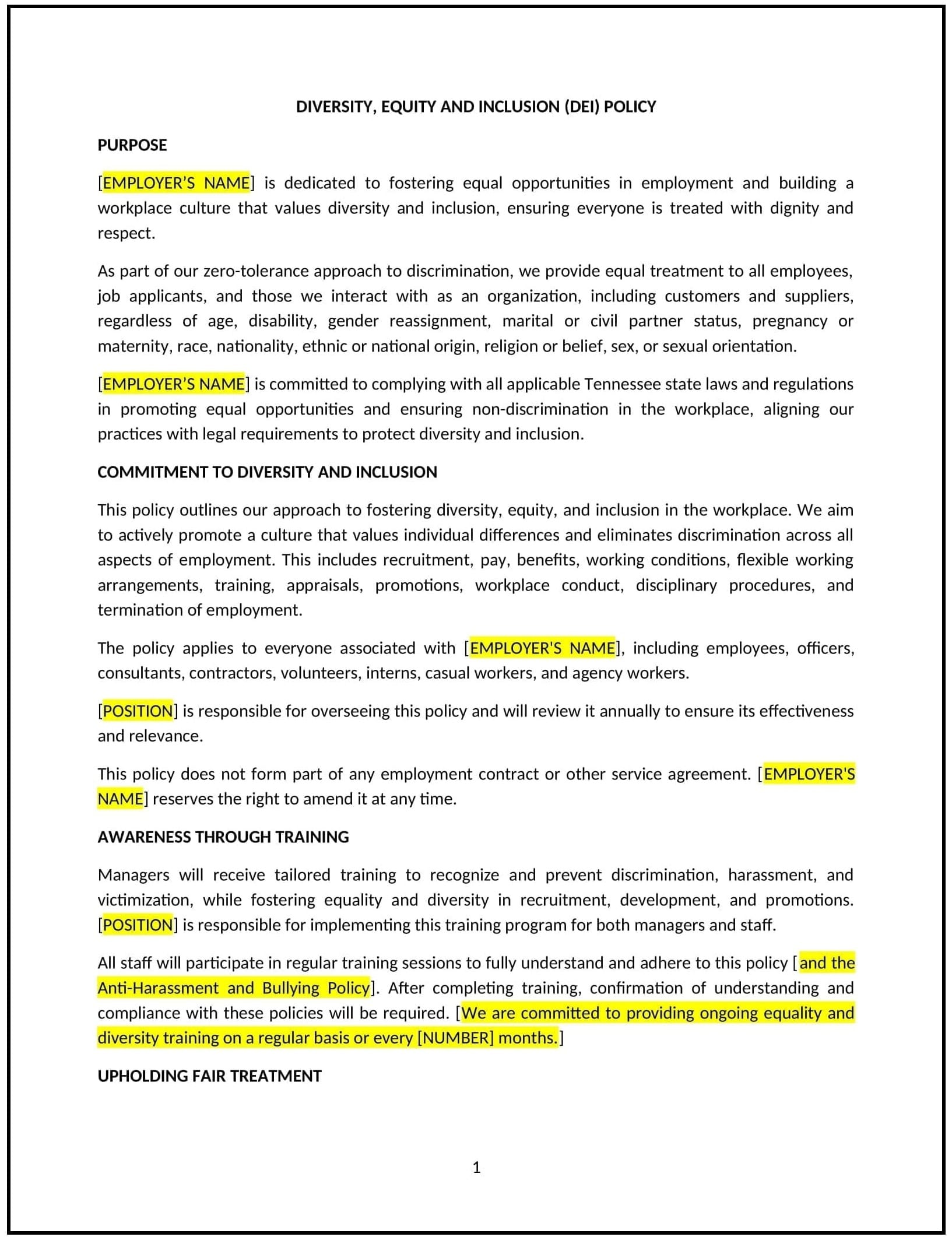Diversity, equity, and inclusion (DEI) policy (Tennessee): Free template
Got contracts to review? While you're here for policies, let Cobrief make contract review effortless—start your free review now.

Customize this template for free
Diversity, equity, and inclusion (DEI) policy (Tennessee)
This diversity, equity, and inclusion (DEI) policy is designed to help Tennessee businesses create a workplace that values and respects individuals from all backgrounds. It outlines procedures for promoting fairness, eliminating bias, and fostering a culture of inclusivity.
By adopting this policy, businesses can attract and retain diverse talent, enhance innovation, and build a positive workplace culture.
How to use this diversity, equity, and inclusion (DEI) policy (Tennessee)
- Define DEI principles: Clarify the business’s commitment to diversity, equity, and inclusion in all aspects of operations.
- Set recruitment practices: Outline steps for ensuring fair and unbiased hiring processes.
- Address workplace behavior: Provide guidelines for promoting respect and inclusivity in daily interactions.
- Train employees: Educate staff on DEI principles, unconscious bias, and inclusive practices.
- Review and update: Assess the policy annually to ensure it aligns with evolving business needs and societal expectations.
Benefits of using this diversity, equity, and inclusion (DEI) policy (Tennessee)
This policy offers several advantages for Tennessee businesses:
- Attracts diverse talent: Demonstrates a commitment to creating an inclusive workplace.
- Enhances innovation: Encourages diverse perspectives and ideas.
- Builds a positive culture: Fosters respect, collaboration, and belonging among employees.
- Reduces bias: Promotes fair treatment and opportunities for all employees.
- Aligns with best practices: Supports a workplace culture of equity and inclusion.
Tips for using this diversity, equity, and inclusion (DEI) policy (Tennessee)
- Communicate the policy: Share the policy with employees and include it in the employee handbook.
- Provide training: Educate managers and staff on DEI principles and inclusive practices.
- Monitor compliance: Regularly review workplace practices to ensure adherence to the policy.
- Address issues promptly: Take corrective action if bias or exclusionary behavior is reported.
- Update regularly: Assess the policy annually to ensure it aligns with evolving business needs.